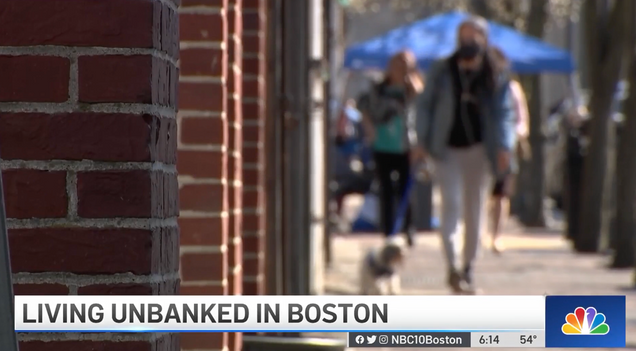Not Everyone Has a Bank Account: The Cost of Being Unbanked

By Jazmyn Gray and Glenn Jones (NBC), Photo: NBC Boston
To produce this story, NBC Boston partnered with Boston University’s Justice Media Computational Journalism co-Lab, a collaboration between the Faculty of Computing & Data Sciences’ BU Spark! program, the College of Communication, and the BU Hub Cross-College Challenge. Contributing students were Jeremy Ahdoot, Melissa Ellin, Aanchal Gupta, Kyle Kamali, Gagan Kang, and Yefei Yao with assistance from professors Osama Alshaykh and Brooke Williams.
For many people, having a bank account is a fundamental part of financial security and independence. It allows them to deposit and withdraw money, pay bills, and build a credit history. However, not everyone has access to a bank account. According to the FDIC, in 2019, approximately 6% of adults living in the U.S. were unbanked — meaning they did not have a checking, savings or money market account. In the same year, 16% of people 18 and older in the U.S. were underbanked, which means they had a bank account but used alternative financial services, like check-cashing facilities.
The consequences of being unbanked or underbanked can be significant. Without a bank account, individuals may have to rely on expensive and potentially predatory financial services, which can make it difficult to save money or build wealth. They may also have difficulty accessing certain financial products and services, such as loans or credit cards.